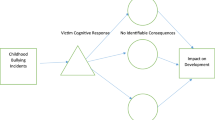Abstract
Assertive community treatment (ACT) has been claimed to be paternalistic and coercive, yet little is known about how patients experience the assertive aspects of ACT. To explore views on—and perceptions of—coercion of patients in Danish assertive community teams. In-depth interviews were conducted with six purposefully selected patients and analysed using thematic analysis. Patients reported lack of influence on treatment process and a poor alliance with case-mangers, not being recognised as an autonomous person, and experiences of staff crossing the line and intruding privacy, as most central to perceptions of coercion. A collaborative and mutually trusting relationship, commitment, persistence and availability of staff, and recognition of the need for social support and help with everyday activities, were most important for counteracting such experiences. Perceptions of coercion were not emphasised in patients’ account of their engagement with ACT, and generally only related to patients’ initial contact with ACT staff. The study suggests that developing mental health practices that enhance the formation of a therapeutic relationship with patients will minimize circumstances that induce perceptions of coercion. ACT, with its engaged and committed staff with sufficient time, focusing on social and practical issues, is successful in facilitating such a contact, as experienced by patients.
Similar content being viewed by others
References
Stein LI, Test MA: Alternative to mental hospital treatment. I. Conceptual model, treatment program, and clinical evaluation. Archives of General Psychiatry 37:392–397, 1980.
Appelbaum PS, Le MS: Techniques used by ACT teams to encourage adherence: patient and staff perceptions. Community Mental Health Journal 44(6):459–464, 2008.
Monahan J, Redlich AD, Swanson J, et al.: Use of leverage to improve adherence to psychiatric treatment in the community. Psychiatric Services 56:37–44, 2005.
Stovall J: Is ACT ethical care? Harvard Review of Psychiatry 9:139–143, 2001.
Szmukler G: Ethics in community psychiatry. Australian and New Zealand Journal of Psychiatry 33:328–338, 1999.
Williamson T: Ethics of assertive outreach (ACT teams). Current Opinion in Psychiatry 15:543–547, 2002.
Watts J, Priebe S: A phenomenological account of users’ experiences of ACT. Bioethics 16:439–454, 2002.
Braun V, Clarke V: Using thematic analysis in psychology. Qualitative Research in Psychology 3(2):77–101, 2006.
Boyatzis R: Transforming qualitative information: thematic analysis and code development. Thousand Oaks, CA, Sage Publications Inc., 1998.
Priebe S, Watts J, Chase M, et al.: Processes of disengagement and engagement in assertive outreach patients: qualitative study. British Journal of Psychiatry 187:438–443, 2005.
Leiphart LR, Barnes MG: The client experience of ACT: a qualitative study. Psychiatric Rehabilitation Journal 28:395–397, 2005.
Gilburt H, Rose D, Slade M: The importance of relationships in mental health care: a qualitative study of service users’ experiences of psychiatric hospital admission in the UK. BMC Health Services Research 8:92, 2008.
Krupa T, Eastabrook S, Hern L, et al.: How do people who receive ACT experience this service? Psychiatric Rehabilitation Journal 29:18–24, 2005.
Chinman M, Allende M, Bailey P, et al.: Therapeutic agents of ACT. Psychiatric Quarterly 70:137–162, 1999.
Leach MJ: Rapport: a key to treatment success. Complementary Therapies in Clinical Practice 11:262–265, 2005.
Author information
Authors and Affiliations
Corresponding author
Rights and permissions
About this article
Cite this article
Thøgersen, M.H., Morthorst, B. & Nordentoft, M. Perceptions of Coercion in the Community: A Qualitative Study of Patients in a Danish Assertive Community Treatment Team. Psychiatr Q 81, 35–47 (2010). https://doi.org/10.1007/s11126-009-9115-5
Published:
Issue Date:
DOI: https://doi.org/10.1007/s11126-009-9115-5




